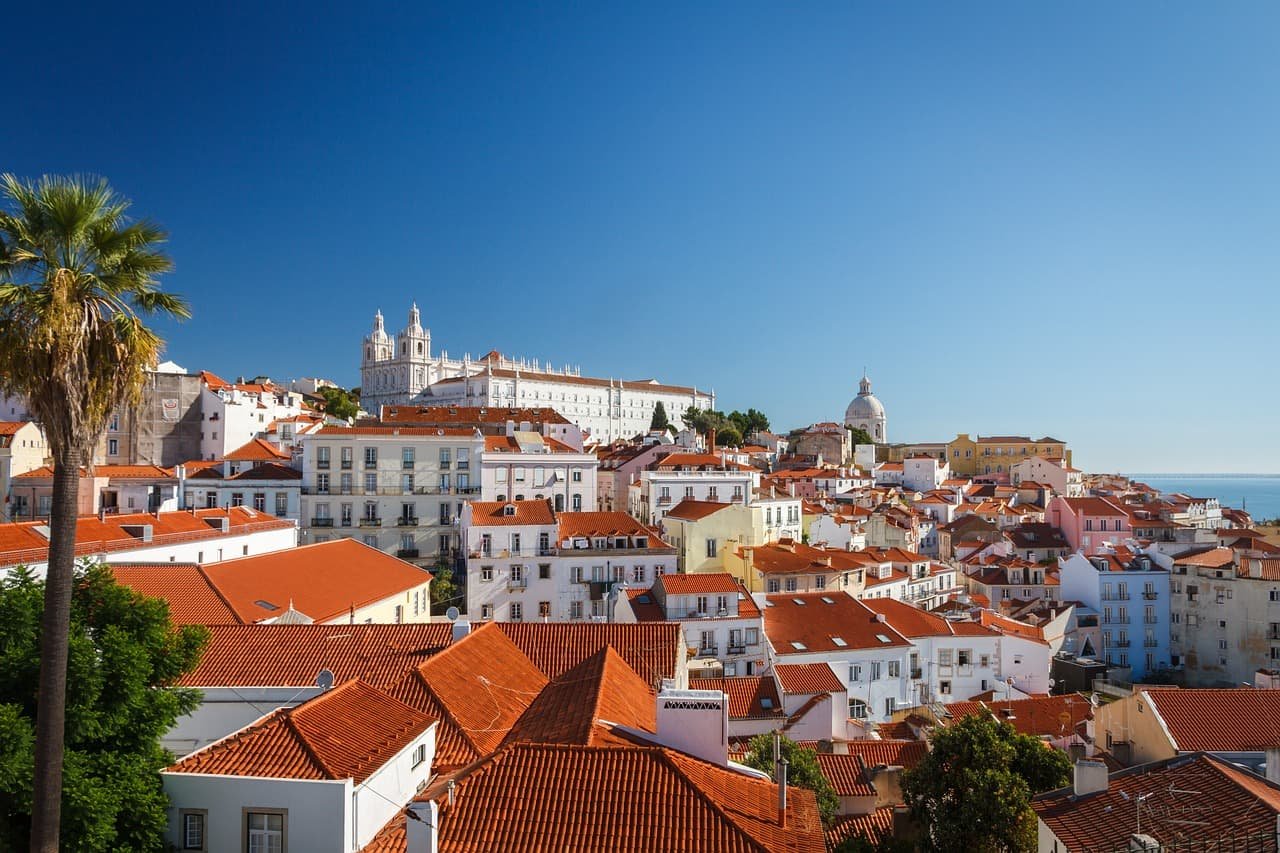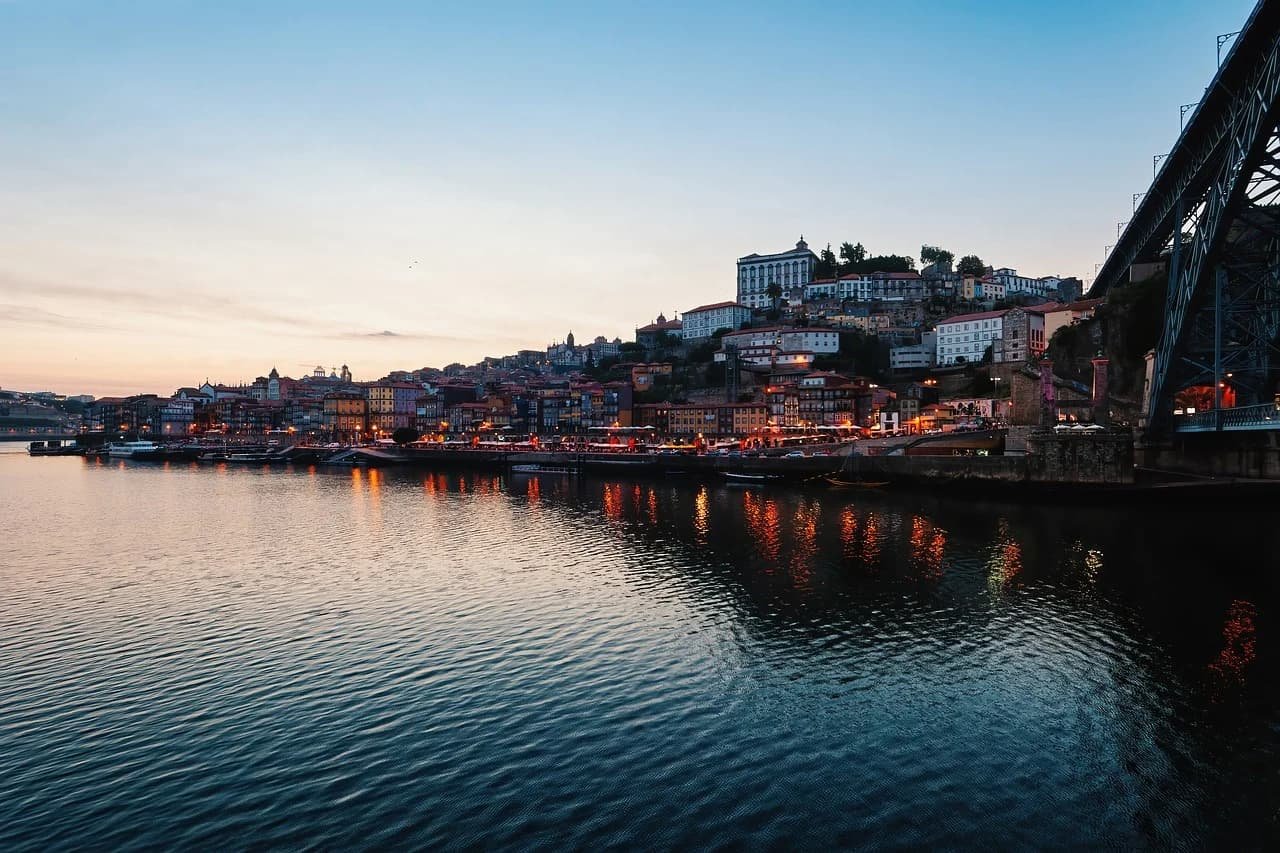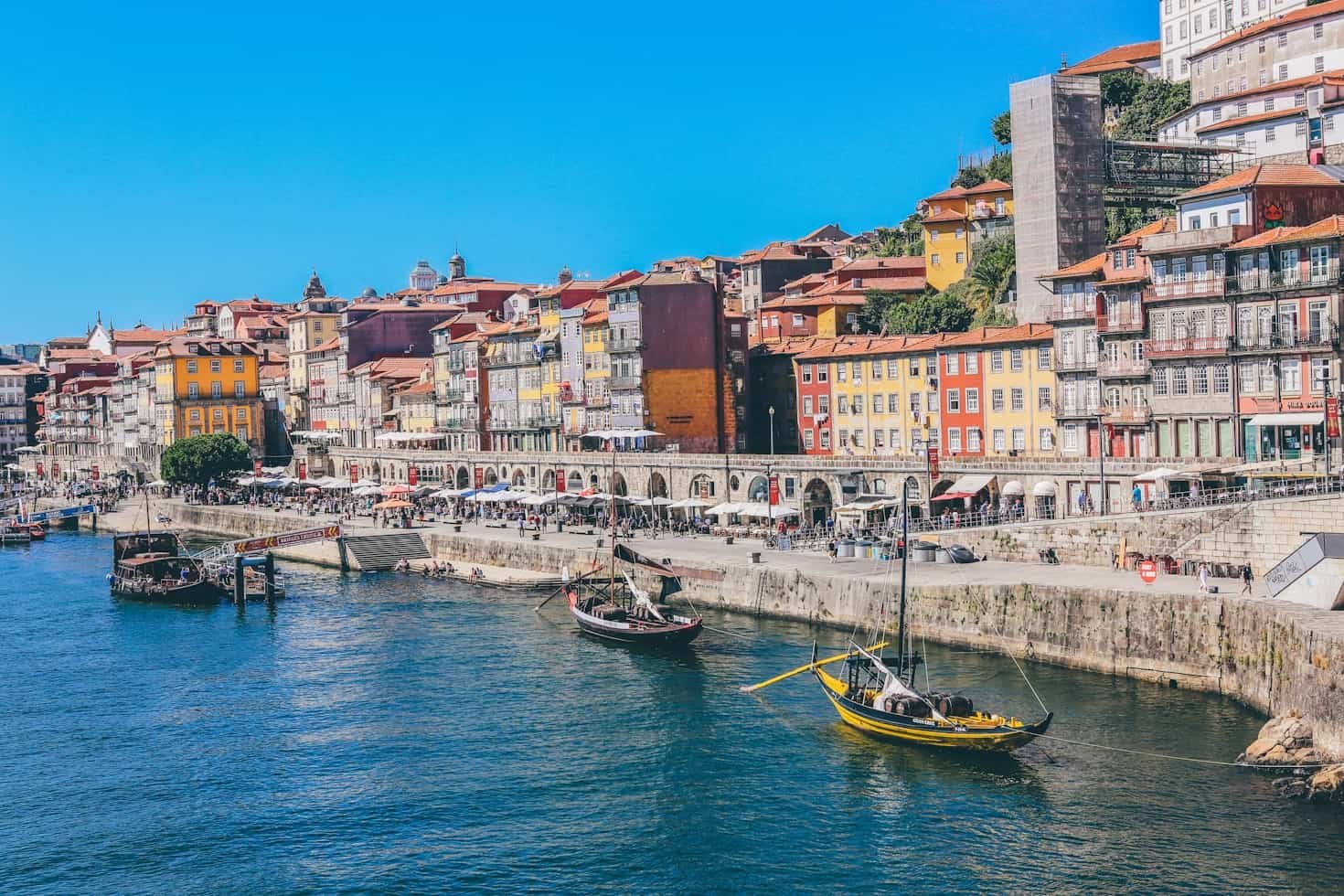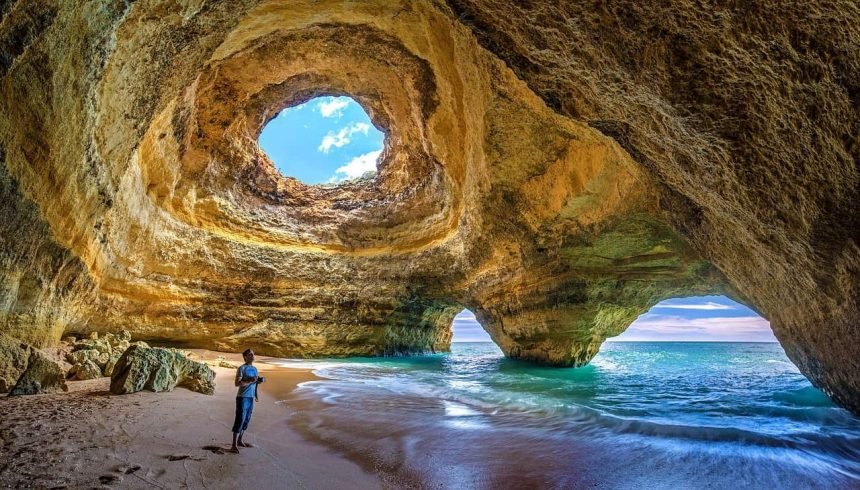Are you confused about the Portugal visa types? Knowing the different types of visas that Portugal issues will help you prepare correctly whether you wish to tour or relocate to the country. Granted, each visa type also has its specific eligibility criteria.
However, Portugal is a fantastic country to visit or relocate to. Think of a stunning coastline, enriched history, and vibrant culture – you’ll get all this and more in the country. It’s no wonder, Portugal remains a top destination for travelers and aspiring residents every year.
So, whether you’re planning a short visit, a year-long adventure, or a permanent move, the visa process can be overwhelming. This blog post is here to help. We’ll break down the different Portugal visa types to help you find the one suitable for you.
Do you Need a Visa in Portugal?
Whether or not you need a visa to travel to Portugal depends on your citizenship or country of origin. Citizens from countries like the USA, Australia, Japan, Canada, the UK, and others (making about 62 countries) are visa-exempt in Portugal.
This also includes countries from other Schengen States. So, citizens from these countries can travel to Portugal for up to 90 days without any visa.
However, for stays over 90 days, foreigners will need to obtain national visas regardless of their nationality. Only EU citizens are the exception. They can simply register their Portuguese residence and stay in the country for a long time.

What are the 3 common Portugal Visa Types?
Portugal has diverse visa options. But depending on their length and purpose of stay, we can categorize them into three:
Short-Stay Visa (Schengen Visas)
Short-stay visas or Schengen Visas (also known as Temporary stay visas) don’t just give you entry to Portugal. But it allows you to travel freely within the Schengen Area (26 European countries) for a maximum of 90 days within 180 days.
These visa types include:
- short-term tourist visa,
- Medical treatment visa
- Family visits visa
- Airport transit
- Seasonal work visa suitable for people looking for work in sectors like forestry, hunting, fishing, agriculture, food, liquor, hospitality, tobacco, retail, construction, and land transport.
- and a business visa.
Who is Portugal’s Short-stay visa suitable for?
This visa is the best fit for tourists, business visitors attending conferences and those wishing to embark on a short-term course in Portugal.
Temporary Stay National Visas
Temporary Stay National Visas allow you to stay in Portugal for more than 90 days and up to 1 year. These visas cater to needs ranging from studies requiring more than 3 months (e.g. an academic degree at a Portuguese University), taking temporary employment with a Portuguese company, internship, or medical treatment. Some such Portugal visa types that fall under this category include:
Job seeker visa
The Job seeker visa is a single entry visa that allows you to reside in Portugal for 120 days with the possibility of an extension for another 60 days. This visa allows you to reside in Portugal while you find a job.
Professional training, internship, or volunteer work
It’s possible for foreigners who have an agreement with a Portuguese institution about volunteer work, unpaid internships, or training to apply for a special visa. This visa also covers high-school student exchange program participants. For these visas, you’ll need an invitation letter from a Portuguese institution alongside sufficient funds and proof of accommodation.
Medical treatment visa
A medical treatment visa can also be a temporary long-stay visa for treatments that would require more than three months. In this case, it can be for your own treatment within the Portuguese health service or accompanying a family member undergoing health treatment. For this visa, you’ll need documentation like a medical report for the person undergoing treatment, proof of treatment to be performed by medical service in Portugal, and proof of relationship with accompanying family members.

Youth Mobility visa
The Youth Mobility visa is only available for people from nine countries. This visa allows you to stay for up to 12 months in Portugal if you wish to work, study, train, intern, or volunteer at any opportunity. The visa is available for people between 18 and 30 in the nine countries (35 age limit for Canada, Peru, and Australia has 31 as the upper limit while there’s no upper limit for the US). The conditions and criteria for this visa depend on each individual country. However, many agreements often require that participants also do six months of paid work in the said country.
Digital Nomad Visa (Remote work)
Portugal also offers the Digital Nomad visa which enables foreigners, self-employed third nations, and foreign company employees to live and work remotely in Portugal. However, they must prove that they have an income of 3,040 monthly and rent or buy a residential property in the country. The visa also allows them to reside in the country for up to two years and then extend the period of their stay.
Study Visa
The Study visa is an ideal choice for students enrolled in a full-time degree program or a long-term vocational training course at a recognized Portuguese institution. It provides residency for the length of your studies, allowing you to focus on your academic pursuits in Portugal. This visa is especially available to people who have the offer to study in a bachelor’s, master’s, PhD, or Postdoc program. Besides the letter from the university or research institution, you’ll also need to show proof of accommodation and enough funds to live in Portugal.
Other types of visas that fall under this category include:
- Long-term seasonal work
- Self-employed or freelance
- Scientific or academic work
- Religious purposes visa
- Self-support visa
- Amateur sports activity
- Any other skilled work
Long-Stay National Visas (Residency Visas)
This visa is a great fit for those seeking to relocate to Portugal. These visas also pave the way to permanent residency or citizenship after staying in Portugal legally for a specialized period. Often these visas are renewable. Residency visas are also unofficially called type 1 visas.
Diving Deeper into Long-Stay National Visas (Residency Visas)
As we delve into the world of Long-Stay National Visas (Residency Visas) in Portugal, you’ll discover a variety of options catering to different lifestyles and goals. Here’s a breakdown of some popular choices

Work Visa
The Portuguese work visa is one of the most sought-after visas. It is given to individuals who have recently received a valid employment contract from a Portuguese company that demands they relocate to the country. Subcategories of people who often seek this visa include skilled workers and highly qualified professionals. With this visa, you can live and work in Portugal for the duration of your employment contract. There are also opportunities for extension and this visa makes you eligible for Permanent residency.
The Work visa splits into two specific categories:
The D1 visa: This is the visa that allows foreign employees of Portuguese companies to relocate to the country. To get this visa, you must have gotten a work contract that allows you to work for at least 12 months in the country. It also demands proof of accommodation. However, you don’t need to have higher education for this visa.
The D3 or HQA visa is granted to highly qualified professionals with higher education in particular fields. Typically, this includes doctors, engineers, scientists, IT professionals, etc. Applicants for the D3 visa need to have a job contract of over 1,4441 Euros or higher
Startup Visa
The startup visa is a sought-after visa for entrepreneurs and self-employed persons looking to start innovative projects in Portugal. For the Startup visa, you’ll need to have over 5,200 Euros in your account as the minimum to apply.
D2 Visa
This is a visa type for other businesses looking to open in Portugal or expand their reach. Like the Startup visa, you’ll need to show that you have rented or owned accommodation in Portugal. This visa requires that you prove that you have a well-structured business plan that would undergo scrutiny for economic, social, scientific, technological, and cultural relevance with a focus on creating jobs in Portugal.
D7 Visa (passive income)
The D7 visa is one of the most common Portugal visa types. It is designed for individuals who receive sufficient passive income streams (e.g., pensions, and rentals) to support themselves in Portugal without relying on local employment. For the D7 visa, the legal income can come from any source, as long as it qualifies as passive income. So it can be a pension, salary from a remote job, rental payments, interests, or more. However, you must show that you receive an income that’s equal to or exceeds the Portuguese minimum wage.
Golden Visa (investment)
The Golden Visa is a great solution for those looking to make a significant investment in Portugal to accelerate their path to residency or citizenship. However, note that you can no longer make investments in real estate under this plan. However, there are other ways such as job creation, scientific research or culture, and acquisition of fund units among others. The smallest investment you can make under this scheme is 250,000 Euros.
Family Reunification
This visa is available for close family members of Portuguese citizens and residents looking to relocate to Portugal. To apply for this visa, applicants must prove their relationship to a Portuguese national or resident via birth certificate, adoption papers, or marriage certificate. Additionally, Portuguese citizen who wants their family members to get residence permits must prove that they have suitable accommodation alongside sufficient funds to support their relatives.
What Documents Do i Need to Get the Portuguese visa?
Most Portuguese visas have similar requirements. You need to prove your finances and that you’re capable of residing in the country without causing trouble. Hence, you’ll find that the common documents you will need include:
- Consent for a Portugal criminal record check
- A criminal record from your country of origin
- Evidence of sufficient means
- Proof of accommodation in Portugal
- Valid health insurance
- A passport or another valid travel document
- Two identical photographs in color
Beyond this, for a temporary stay visa, you might also need a copy of your itinerary and return ticket reservation as well. In contrast, those going for long-stay visas will need to provide things like work contracts, to prove their affairs in Portugal. For other documents and eligibility criteria depending on the visa type, you’re going for, please check with your embassy or the Portugal Ministry of Foreign Affairs website.
How Much is the Portugal Visa Fee?
Most visas in Portugal cost about 90 Euros. However, some countries pay slightly less and there are differential treatments for children and people that fit specific criteria. This means Children over six and under 12 pay a reduced fee of 40 Euros. You might have to pay an additional service fee in some countries which is usually no more than half the standard visa costs. Furthermore, Nationals of countries sharing Visa Facilitation Agreements with the EU pay a reduced fee of 35 Euros. These countries include but are not limited to Serbia, Ukraine, Macedonia, Georgia, Bosnia and more. Also, note that the ideal time to wait for your Portuguese visa approval process is 60 days.
Even so, certain people are exempt from paying fees. This includes:
- Children under six
- Students, postgraduates, and teachers who are traveling for educational or training purposes
- Representatives of non-profit organizations aged under 25 participating in events organized by non-profit organizations.
- Family members of EU/EFTA nationals and UK nationals under the Withdrawal Agreement.

Can I Buy a House for a D7 visa in Portugal?
As part of the D7 application process or many other long-stay visas, you’ll need a 1-year rental contract, or deed on your purchase of property to prove that you have accommodation for the duration of your stay in the country.
What is the Minimum Stay for a D2 visa in Portugal?
The minimum stay requirement for people under the D2 Entrepreneur visa is 4 months in Portugal during the first year, and then at least 6 months per year for 3 years.
How Do I get a Portuguese Visa from the UK?
It’s easy to get a Portuguese visa from the UK. You only have to figure out the ideal visa for you. Then get in touch with your embassy to get the latest information about the eligibility criteria and the documents you’re going to need. It’s also important to plan for the cost of living in Portugal. Even as Portugal’s cost of living is significantly less, planning helps you prepare remarkably.
What is the Difference Between D6 and D7 in Portugal?
The D7 Visa has a family component that is slightly different from the traditional Family Reunion visa. On the traditional Family Reunion visa, you can request that dependent children, dependent grandparents, or a spouse relocate to Portugal. However, with the D7 you need to prove you can also support that spouse or dependent child. Also, the Family reunion visa is faster to get.
What is the Easiest Visa for Portugal?
The quickest and easiest visas to get in Portugal are the D4 and D5 study visas. This visa allows you to study in Portugal for more than a year. They also qualify for permanent residency. However, among experts, the best visa is the D7 visa.
How Can I Stay in Portugal for More than Three Months?
To stay in Portugal for more than three months, you need to target temporary long-stay visas or long-stay national visas. These categories allow you to stay more than three months and upward.





